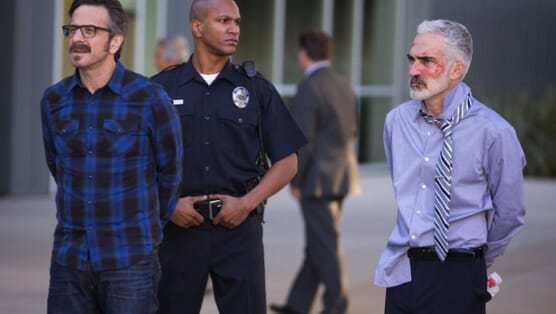Maron: “Radio Cowboy”
(Episode 2.10)

One could argue that Marc Maron wants us to think he’s a failure, or at least that he plays one on TV each week on IFC. It’s tough, tough work trying to make a name—or a life, for that matter, out of talking for a living, particularly when your favorite (and least favorite) subject matter seems to be yourself. But somehow, in real life, it worked for Marc Maron. People liked listening to him talk about himself. People liked listening to him interview other people and figure out ways to make his subjects talk about him, too.
One of the constant themes of Maron’s external monologue is its creator’s own (shifting) place in the world. Sometimes he feels old. Sometimes he feels young. Sometimes he feels happy. Sometimes he feels sad. Seldom does he feel just right.
What’s fascinating about Maron’s larger biography is that, for all his preoccupation with being too old and past his prime, his greatest success—and the one that bred the success, the TV deal, and more—is a younger man’s medium.
Podcasts—the words and the technology—are roughly 10 years old. Maron was 40 at the time, hosting a fairly conventional early-AM radio show. He’d crash and burn with four major shows before launching WTF with Marc Maron five years later. And though he surely received many of the criticisms leveled at him at this episode’s outset by radio hosts in denial (“there is no such thing as a popular podcast”), somewhere along the line, Marc found himself ahead of the curve on something. He was winning.
-

-

-

-

-

-

-

-

-

-

-

-

-

-

-

-

-

-

-

-

-

-

-

-

-

-

-

-

-

-

-

-

-

-

-

-

-

-

-

-








































